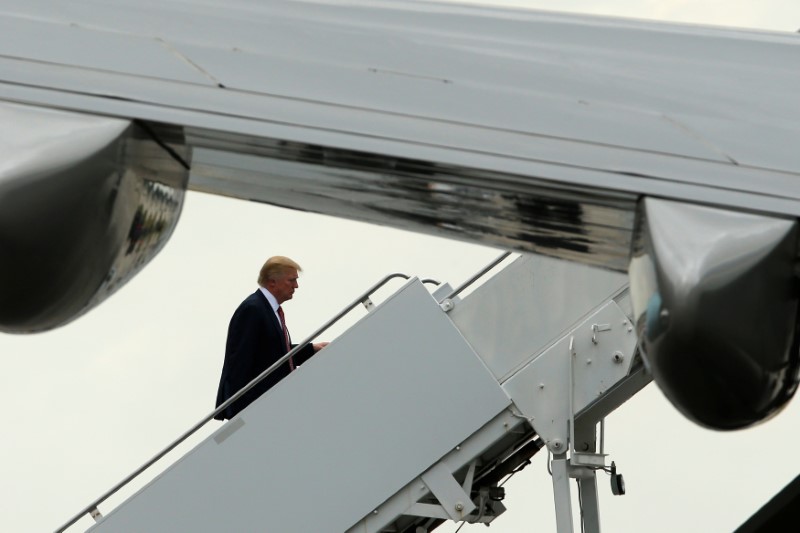By David Shepardson
WASHINGTON (Reuters) - U.S. President Donald Trump's administration is preparing to release a wide-ranging executive order to reduce the role that climate change plays in policy decisions, according to a Trump administration official who reviewed a draft of the order.
The move could alter how U.S. agencies weigh regulations on a broad array of industries, from drilling, coal mining and auto manufacturing to refining.
The official on Tuesday confirmed a Bloomberg News report that the executive order will instruct the Environmental Protection Agency and other agencies to overhaul their use of the "social cost of carbon," an Obama-era policy that seeks to quantify potential economic damage from climate change for the purposes of drafting regulation.
White House spokeswoman Kelly Love declined to discuss the timing of an executive order on energy. "We have nothing to announce at this time," she said.
Under rules put in by place by former President Barack Obama, the current cost of carbon in policy decisions is $36 per ton, which will rise to $50 by 2030. The Trump order would direct regulators to use a "discount rate" that would dramatically reduce, or eliminate, that cost.
Discount rates are used to come up with a net present value of something whose benefits and costs will be distributed over time. In the case of carbon, the impact of emissions on the earth's climate can take several years to appear.
Under some scenarios referenced in the executive order, carbon could have a zero or "negative value," the source said. The source said that the order may be an initial step to ultimately phasing out the carbon evaluation entirely.
The executive order could be issued as soon as this week, the source said, and may include other energy-specific measures, like a requirement for the EPA to conduct a review of regulations that could harm energy production.
Reuters and others have reported previously that Trump planned to target Obama-era green regulations, including a federal coal mining ban and an initiative forcing states to cut carbon emissions.
The Department of Interior under Obama had issued a moratorium on coal leasing on federal land in 2015 as it sought to review the program and evaluate whether the government adequately priced the value of coal extracted from public lands on behalf of taxpayers.
The Clean Power Plan was Obama's centerpiece initiative to combat climate change, requiring states to slash emissions of carbon dioxide. But it was never implemented due to legal challenges launched by several Republican states.
The new head of the Environmental Protection Agency, Scott Pruitt, said last week he is not convinced that carbon dioxide from human activity is the main driver of climate change and said he wants Congress to weigh in on whether CO2 is a harmful pollutant that should be regulated.

The Obama administration's carbon cost estimates were first issued in 2010 and have been used to analyze rules directly targeting carbon dioxide emissions, like car and truck emissions standards. They have also been used to cover rules on indirect emissions, like one to control mercury and other air pollutants from power plants.